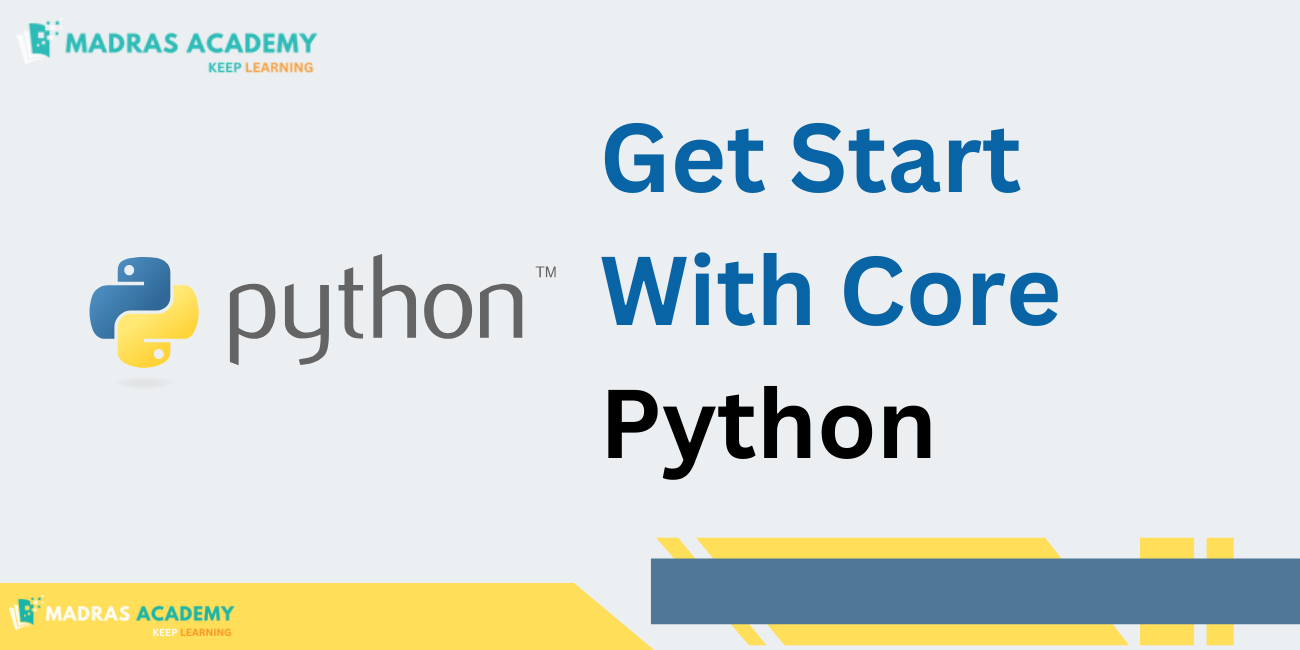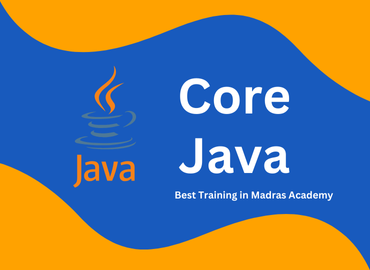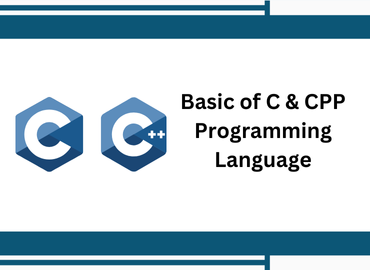Python Programming for Beginners

This course will guide you through the basics of Python, helping you quickly grasp essential concepts like variables, functions, loops, and more. You’ll build a strong foundation in Python programming, enabling you to develop efficient scripts and solve real-world problems effectively.
Course Information
This Core Python course will help you master Python fundamentals quickly and thoroughly. You’ll develop a strong understanding of essential Python concepts, including variables, data types, loops, conditionals, functions, and object-oriented programming. Additionally, you’ll explore key topics such as file handling, error handling, modules, and working with built-in data structures like lists, tuples, sets, and dictionaries.
What Will You Learn?
This tutorial will help you learn Python quickly and thoroughly. You will gain a strong foundation in Python programming, from basic syntax to advanced concepts, through hands-on practice.
- Understand Python syntax and basic programming concepts.
- Work with variables, data types, and operators.
- Learn about control flow (loops and conditionals).
- Master functions and modules in Python.
- Work with file handling and data manipulation.
- Understand object-oriented programming (OOP) in Python.
- Learn how to use lists, tuples, dictionaries, and sets.
- Practice error handling and debugging techniques.
- Write real-world Python applications.
- Get hands-on experience with Python projects and exercises.
Requirements
This course is designed for beginners, and no prior programming experience is required. However, a basic understanding of computers will be helpful.
- No prior programming experience needed.
- A laptop or desktop with an internet connection.
- Python installed on your system (guidance will be provided).
- A willingness to learn and practice coding.
- Basic logical thinking skills.
-
Introduction to PythonLearn the basics of Python programming language, its features, and how it differs from other programming languages. This session introduces the fundamentals of Python and sets the stage for the rest of the course.
-
About Software and Installation StepsStep-by-step guide on how to install Python and necessary software (IDEs like VSCode, PyCharm, etc.). You'll also learn how to set up your Python development environment on various operating systems.
-
How to Print the Message in Python? Handling VariablesLearn how to print messages to the screen and handle variables in Python. You'll also explore different data types and how to assign values to variables.
-
Run-time Input and Type ConversionUnderstand how to accept user inputs during program execution and convert between different data types as required. You’ll practice using Python’s built-in functions to handle dynamic input.
-
Operators in PythonAn overview of operators in Python, including arithmetic, comparison, logical, and assignment operators. You will learn how to use them in expressions.
-
Control Statements Using If-Else and Python OperatorsLearn how to use control statements like if, else, and elif for decision-making. This session will also explore the usage of operators in condition checking.
-
Operators in Python (Advanced)A deeper dive into Python’s operators, including bitwise, identity, and membership operators, and how they are used to manipulate data.
-
Looping in PythonMaster the basics of looping with for and while loops. Learn how to iterate over sequences and execute code multiple times.
-
String HandlingDiscover how to work with strings in Python. You’ll explore string manipulation methods like concatenation, slicing, and formatting.
-
Arrays in PythonIntroduction to arrays in Python (lists). Learn how to create, access, modify, and iterate through arrays.
-
Collections in Python: ListsLearn about Python lists, their methods, and how to store multiple elements in an ordered, changeable collection.
-
Collections in Python: TuplesUnderstand the concept of immutable sequences in Python. Learn how to work with tuples, their methods, and use cases.
-
Collections in Python: SetsExplore sets in Python and how to work with them. Understand their properties, such as uniqueness and the difference between sets and lists.
-
Collections in Python: DictionariesLearn how to use dictionaries to store key-value pairs. This section covers dictionary methods, iterating over dictionaries, and accessing values.
-
Custom Functions in PythonLearn how to define and use custom functions. You'll explore various types of functions, including functions with parameters, return values, and default arguments.
-
Lambda ExpressionsDive into Python's anonymous functions using lambda expressions. Learn when and how to use them effectively in your programs.
-
Modules in PythonUnderstand how to import and use modules in Python to organize code and reuse functionality. Learn how to use Python's built-in modules and third-party libraries.
-
File Handling in PythonLearn how to open, read, write, and close files in Python. Explore how to handle file operations efficiently, including error handling during file operations.
-
Introduction to OOP (Object-Oriented Programming) in PythonIntroduction to the four pillars of object-oriented programming: encapsulation, inheritance, polymorphism, and abstraction, and how they are implemented in Python.
-
How to Create Classes and Objects in PythonLearn how to define and instantiate classes and objects. Understand the concepts of object-oriented programming and how to apply them in Python.
-
What is a Constructor in Python?Discover the concept of constructors in Python and how to define the __init__ method to initialize objects.
-
Inheritance in PythonLearn about inheritance and how it enables you to create a new class from an existing one. Understand single, multiple, and multilevel inheritance and how to extend functionality.
-
Polymorphism in PythonLearn about polymorphism in Python, how method overloading and method overriding work, and how to use polymorphism to create flexible and reusable code.
-
Threading in PythonUnderstand how to implement multithreading in Python. Learn how to create and manage threads to improve program performance and handle multiple tasks simultaneously.
-
Working with SQLite Database: CRUD OperationsLearn how to connect Python with SQLite databases. You'll create, read, update, and delete data from the database using Python’s sqlite3 module.
| Batch | Start Date | Timing | Days | Mode |
|---|


